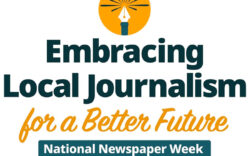“Being an American means reckoning with a history fraught with violence and injustice. Ignoring that reality in favor of mythology is not only wrong, but also dangerous,” said documentary filmmaker Ken Burns in 2021. Today a tide of anti-intellectualism and authoritarianism is sweeping across America as museums, libraries and bookstores are under attack from the White House down to local school boards.
Philosopher George Santayana presaged the words of documentarian Burns when he famously warned: “Those who do not remember the past are condemned to repeat it.” A culture war now being waged by the Trump administration and its MAGA minions seeks to erase or mollify memories of America’s past in favor of a sanitized view of history. Even the Smithsonian Institution’s museums are under attack from a president who recently called them “OUT OF CONTROL, where everything discussed is how horrible our Country is, how bad Slavery was, and how unaccomplished the downtrodden have been—nothing about Success, nothing about Brightness, nothing about the Future.”
Trump and his would-be museum critics should take another look at the Smithsonian’s museums near the White House that Trump is busily remaking in his own gilded, garish image. The Smithsonian’s museums, a repository of this nation’s history and culture, are affectionately called “America’s attic.” No cleaning of that attic is needed by those who would transform museums into mausoleums where America’s history lies dead.
To say there is nothing about success or brightness or the future in the Smithsonian shows ignorance of its museums devoted to art, history, science, politics and popular culture. The Smithsonian is a beloved part of the American experience enjoyed by millions of U.S. citizens and foreign visitors every year. Yes, the Smithsonian documents America’s original sins of slaughter of indigenous people and enslavement of Black people, but it also shows the often glorious and uplifting history of this nation. The success of a racial rainbow of Americans is celebrated in the Smithsonian. The brightness of this nation’s culture shines forth in its art museums, and the future is on dramatic display in the Smithsonian’s Air and Space Museum, where visitors see the whole history of flight from the Wright Brothers’ first airplane to the Apollo spaceship that went to the moon and back.
The Smithsonian Institution is not “out of control.” It is an optimistic American icon endangered by the forces of anti-intellectualism. It deserves the support of every citizen who values truth and reason. The same can be said for America’s libraries and bookstores, which are also under attack by self-styled censors. Books at their best contain ideas and concepts that change minds, pique curiosity and challenge entrenched power. Such books are dangerous to small minds and such books will be celebrated next month during Banned Books Week events from Oct. 5–11 at libraries and bookstores nationwide.
Books, ballots and bullets have changed the history of America. Even before the Declaration of Independence was signed in 1776, American patriot Thomas Paine urged rebellion against despotism in his slim volume titled Common Sense that quickly became an early bestseller in a fledgling land eager to change from colony to country. In Common Sense, Paine wrote rousing words that hold true today: “Long habit of not thinking a thing wrong gives it a superficial appearance of being right.” Paine also wrote, “In absolute governments the king is law, so in free countries the law ought to be king,” he said in words that should be required reading for pseudo-patriots and book burners who seek to circumscribe history and culture as our American republic approaches the 250th anniversary of its birth next year.
Books have both chronicled and changed America. Uncle Tom’s Cabin by Harriet Beecher Stowe exposed the horrors of slavery in the antebellum South. How the Other Half Lives by photojournalist Jacob Riis pictured urban poverty in the Gilded Age. The Jungle by Upton Sinclair showed dangerous and unsanitary conditions in the meatpacking industry.
Those who would circumscribe libraries, bookstores and museums today should consider the words of Ken Burns: “The dark chapters of American history have just as much to teach us, if not more, than the glorious ones, and the two are often intertwined.”
Like what you just read? Support Flagpole by making a donation today. Every dollar you give helps fund our ongoing mission to provide Athens with quality, independent journalism.










